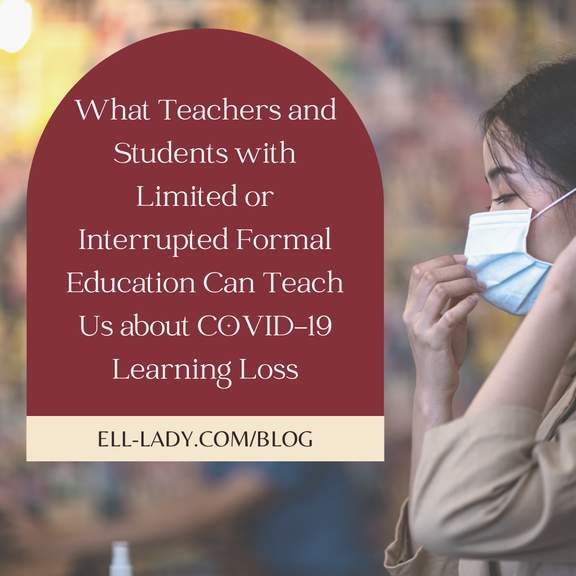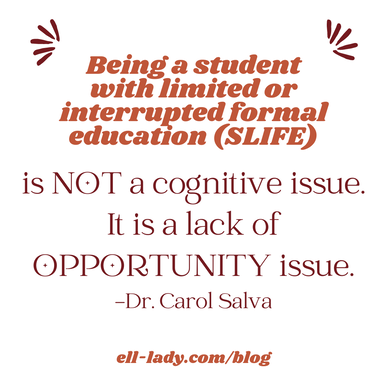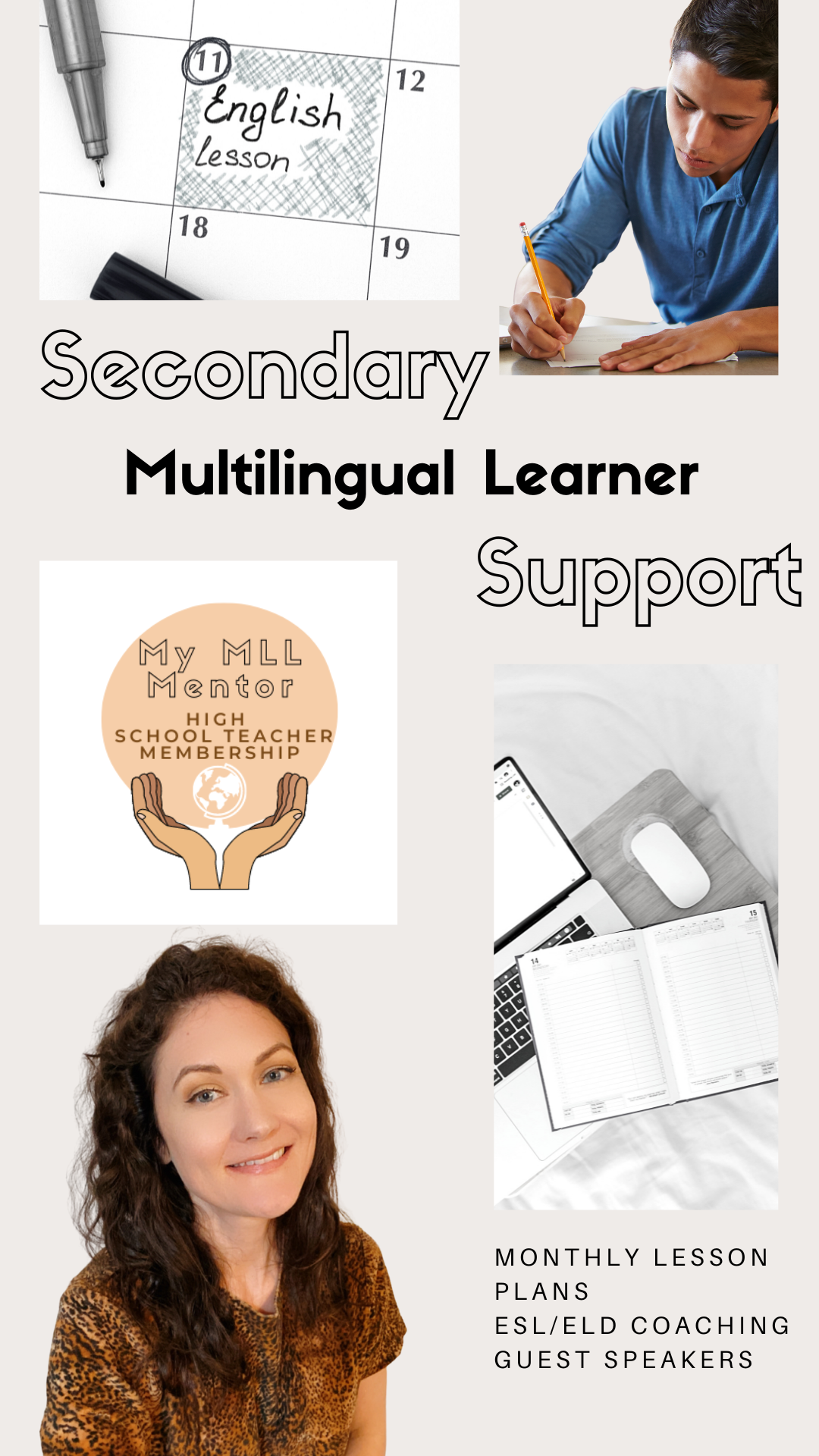|
Learning loss is a huge buzzword right now, and for good reason. In my new school district which serves preschool to 8th grade, I am hearing a lot from teachers that there are huge, worrisome gaps that they are seeing with their students. And I'm also seeing it in Teacher Twitter Land.
But what can we learn from our teachers of students with limited or interrupted formal education (SIFE or SLIFE)? These teachers receive students with learning loss all of the time! What can these resilient students with superpowers teach us? And what tips can their teachers give us? I had to talk with Orly Klapholz from Inlier Learning in our high school teacher membership, My MLL Mentor, since she was a S(L)IFE teacher in New York and Florida. In my old district, we had a newcomer school for our recently arrived students, so most of the time, I did not get to keep our SLIFE until they came back after their two years at the Newcomer International School (bummer)! Here are some key takeaways about our conversation on serving this super special group of multilingual learners as it relates to the world of COVID-19 and learning loss. Use mini-lessons Using mini-lessons helps students get that direct instruction with the foundational skills they need. SLIFE teachers use these targeted, short lessons to teach where there are specific gaps, and they most likely occur with foundational skills. Since not every SLIFE student is the same and they come to us with many different backgrounds and knowledge, Orly said she would teach to whole group what she noticed most students needed, and then teach in small groups if other skills needed to be taught. If you haven't used mini-lessons before, especially if you are a high school teacher, try out this mini-lesson organizer to help you out! Integrate foundational skills into every content area This may be difficult for high school teachers, but it's so important to make sure that students are getting some of the foundational skills in their content areas so they can make cross-curricular connections and get the practice they need. This also connects back to using mini-lessons- not all students will need foundational skills mini-lessons, especially in the content-area classroom! Using small groups is key here, and if you are a high school ESL teacher, pushing in and co-teaching might be the best to help make this happen. Use picture books Don't be afraid to use picture books, middle and high school ESL teachers! Orly spoke about making adapted versions of texts for her students and creating mini-books with pictures. You can find a lot of adapted materials from some of the classics, like this one for Romeo and Juliet, or you can use Rewordify to simplify the text yourself. Who doesn't like mini versions of the classics, anyway?? I am a sucker for anything mini! Never stop learning Finally, if you haven't had formal training on teaching foundational skills like many other middle and high school teachers, there are many webinars and online resources that are free. Orly did a great free webinar with Saddleback Educational Publishing about this. Saddleback has an awesome webinar series with many other topics- it's a must-see! Here are some other resources to check out:
Final Thoughts Our students with limited or interrupted formal education can teach us A LOT. They are so resilient and capable; after all, they do not have cognitive disadvantages- oh no- they are superstars. It is a lack of opportunity issue, said wisely by Dr. Carol Salva! Our students had different opportunities and experiences during COVID-19 lockdowns and distance learning. Some students had the opportunity to have great internet and computers; some did not. Some students had the opportunity to have family members at home to help them with school work; some did not. Some students had to babysit siblings; some did not. Some had to change diapers, make meals, be home alone, suffer from depression and loneliness, or go to work. We all, every single one of us, had different experiences and opportunities during this hard time. What can we learn from our S(L)IFE? That our students will bounce back; they are resilient! It's not all gloom and doom like the news may tell you. Just take a look at some S(L)IFE and immigrant success stories and you will feel so much better, I promise! Here is a story from Sultan and one from Waleed, both who moved here from Yemen. Read more stories on greencardvoices.org to watch and read about some amazing stories of 500 immigrants from 140 countries! What are some things your S(L)IFE students have taught you? Comment below!
0 Comments
Leave a Reply. |
AuthorI support middle and high school teachers through monthly lesson plans, coaching, and guest speaker offerings in our Secondary ESL Teacher Membership. Archives
April 2023
Categories
All
|



 RSS Feed
RSS Feed
